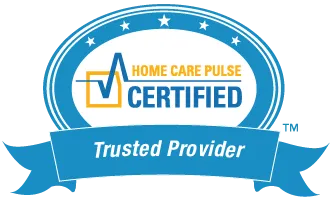Competency of Care Team
Home Care

Assisted Living

Private Caregiver

Home Health

Family Care

No Care

Competency isn’t just about training — it’s about consistency, professionalism, and the ability to respond to changing needs with skill and confidence. The qualifications and structure of the care team determine whether families can truly relax or must constantly monitor what’s happening.
Home Care
Home care through a licensed agency offers highly trained, carefully vetted professionals who specialize in supporting seniors with day-to-day activities and chronic conditions.
At Interim Home Care, all caregivers are W-2 employees — background-checked, drug-screened, and personally interviewed. They receive continuous supervision and support from clinical and administrative staff, ensuring care is not only compassionate but also competent. Families benefit from a professional structure that guarantees accountability and quality control.
Assisted Living
Assisted living staff are generally trained in basic caregiving and medication assistance, but turnover and staff-to-resident ratios affect consistency. While some employees are outstanding, others may be new or undertrained. Quality often depends on the specific facility and leadership rather than industry standards.
Private Caregiver
Competency levels among private caregivers vary dramatically. Some are excellent, others unqualified — and without oversight, there’s no way to verify skills, credentials, or performance. Families shoulder full responsibility for training, supervision, and correction if something goes wrong.
Home Health
Home health care is provided by licensed clinicians such as nurses and therapists who operate under medical direction. These professionals are highly trained, competent, and regulated. However, their role is short-term and focused on medical needs rather than ongoing daily care.
Family Caregiver
Family caregivers almost always lack formal training. Though motivated by love, they may not know how to safely transfer, manage medications, or recognize signs of decline. The emotional closeness also makes it difficult to maintain professional boundaries, reducing the effectiveness of care.
No Care
When no professional care is in place, there is no competency at all. Seniors are left to manage complex physical and cognitive challenges alone, often resulting in avoidable mistakes, injuries, or emergencies.


